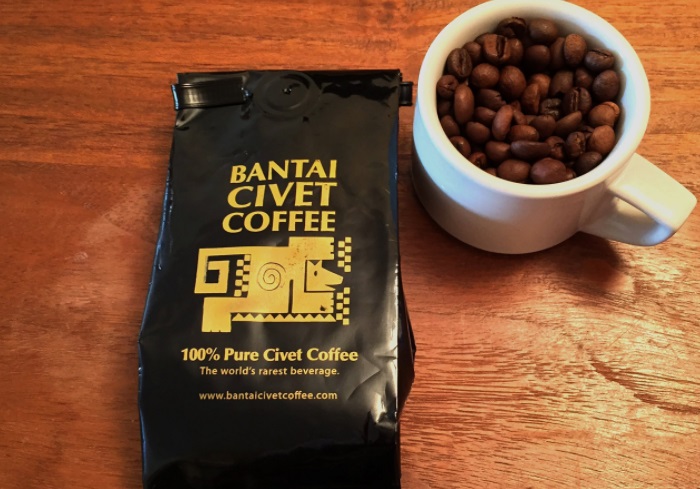
Civet coffee, widely known as Kopi Luwak, stands out in the world of coffee for its unusual production method. Originating from Southeast Asia, this coffee is made from beans that have been eaten and excreted by a small mammal called the Asian palm civet. The civets pick the ripest cherries, eat them, and then digest them partially. The beans are later collected from their feces, cleaned, and roasted to produce a coffee that is renowned not just for its unique origins but also for its flavor profile.
This peculiar process not only makes Kopi Luwak rare but also contributes to its high price. The civet’s digestive enzymes alter the proteins in the coffee beans, which can reduce the bitterness and give the coffee a smooth, unique flavor. Despite its popularity among curious coffee enthusiasts, this production method raises various ethical and environmental concerns, making it a controversial choice among coffee lovers.
Key Takeaways
- Distinct Flavor Profile: Kopi Luwak is known for its smooth, less acidic taste, often noted for hints of caramel and chocolate.
- Health Benefits: Contains antioxidants similar to regular coffee, which can help protect against inflammation and free radical damage.
- Safety Assured: The coffee is safe to drink, with thorough cleaning and high-temperature roasting processes eliminating any potential health risks from its unique production.
- Ethical Concerns: Significant ethical issues arise from the conditions under which the civets are kept. Choosing ethically sourced Kopi Luwak is crucial for animal welfare.
- Consumer Tips: Verify the authenticity of Kopi Luwak by purchasing from reputable sellers and looking for certifications that ensure ethical sourcing practices.
Civet Coffee Pricing Overview
The cost of civet coffee, or Kopi Luwak, varies significantly based on its sourcing—whether it’s from wild or farmed civets. A cup of farmed Kopi Luwak can range from $5 to $50, largely depending on where you’re buying it. In contrast, a cup of the wild variety might cost anywhere between $20 to $100, reflecting its scarcity and ethical sourcing.
When it comes to purchasing by the kilogram, farmed Kopi Luwak is generally priced between $100 and $250, while the wild-sourced beans can fetch upwards of $600 per kilogram. This stark pricing difference underscores the premium placed on ethical practices and the quality of life for the civets involved in the production.
Factors Influencing Civet Coffee Pricing
The pricing of Kopi Luwak is influenced by a variety of factors including ethical considerations, rarity, and the specific production methods used. Ethical concerns such as the treatment of civets and sustainable farming practices play a crucial role. Coffee derived from civets that are treated well and roam free tends to be more expensive due to the ethical methods involved in its collection and the limited output.
The rarity of Kopi Luwak also significantly impacts its price. The labor-intensive nature of collecting only the beans that have been eaten and digested by wild civets means that the supply is naturally limited. This scarcity is a major price driver, especially for the wild variety which is less common than the farmed one.
Comparison of Prices Between Farmed and Wild Kopi Luwak
Farmed Kopi Luwak is typically cheaper than its wild counterpart due to the scale of production and less labor-intensive collection methods. However, this often comes at the cost of quality and ethical concerns, as the civets are usually kept in confined spaces and fed a diet consisting solely of coffee cherries, which can affect their health and the coffee’s taste. In contrast, wild Kopi Luwak is produced from beans collected from the feces of free-roaming civets, who choose only the ripest and highest quality cherries.
This not only ensures a superior flavor but also supports more humane treatment of the animals. Thus, the higher price of wild Kopi Luwak reflects both its rarity and the higher ethical standards of its production.
How to Verify Genuine Civet Coffee
Verifying genuine Kopi Luwak involves a few key steps to ensure you’re getting the real deal. First, look for reputable sellers known for their transparency and ethical sourcing practices. Certifications can also be a helpful indicator; check for labels like Fair Trade or Rainforest Alliance, which suggest that the coffee meets certain ethical and quality standards.
Finally, examine the beans themselves: genuine Kopi Luwak beans often have a unique appearance, being slightly irregular in shape and having a lighter color due to the civet’s digestive process. These indicators can help you make an informed purchase and enjoy authentic civet coffee.
Ethical and Sustainability Considerations
The ethical treatment of civets and sustainability in Kopi Luwak production are major concerns. Ethically sourced Kopi Luwak comes from civets that are free-roaming and not harmed during the collection process. These practices not only ensure better living conditions for the civets but also tend to produce a higher quality coffee.
Additionally, sustainability involves supporting local farmers and ensuring that coffee production does not harm the environment. By choosing ethically sourced and sustainably produced Kopi Luwak, consumers can contribute to the welfare of wildlife and the betterment of local communities involved in its production.
FAQs
What does Kopi Luwak taste like?
Kopi Luwak is often described as having a smooth, less acidic flavor compared to regular coffee. It might include hints of caramel, chocolate, and a slight earthiness, which many attribute to the unique digestive process the beans undergo.
Are there health benefits to drinking Kopi Luwak?
Like regular coffee, Kopi Luwak contains antioxidants that may help protect against inflammation and free radical damage. However, the specific health benefits aren’t significantly different from those of other premium coffees.
Is Kopi Luwak safe to drink?
Yes, Kopi Luwak is safe to drink. The beans are thoroughly cleaned and roasted at high temperatures, which eliminates any bacteria that might have been present due to the beans passing through the civet’s digestive tract.
Does the unique production process affect the coffee’s safety?
The production process of Kopi Luwak involves several stages of cleaning and roasting, ensuring that the final product is as safe as any other coffee. The thorough roasting process helps in eliminating any pathogens.
Final Thoughts
Kopi Luwak, one of the world’s most unique and controversial coffees, commands high prices due to its unusual production process involving civets. While its exotic backstory and distinct taste profile attract many enthusiasts, the ethical concerns regarding the treatment of civets in the production process are significant.
For those considering trying Kopi Luwak, it’s essential to seek out ethically sourced products that ensure the welfare of the animals and support sustainable practices. This not only helps in enjoying a guilt-free cup of this rare coffee but also promotes the conservation of wildlife and supports the livelihoods of local farmers.









